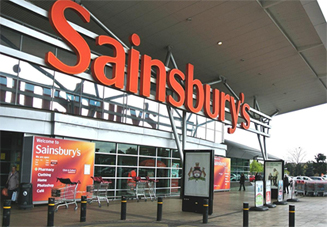Top store in under pay shock
John Lewis has long been lauded for its staff-centred approach – their employee ownership model means workers share in the profits and so have a direct connection to the value they create.
But the company’s ethics were belied when it came to light yesterday (May 9) that its profits were dented to the tune of £36m because they had paid all their hourly staff below the minimum wage – for six years.
John Lewis blamed a payroll error which it says arose because of the way the company pays its hourly workers – it averages pay each month instead of calculating pay by precise hours worked. This system failed to take into account the months that staff worked longer than average.
The hugely popular firm’s motto is that they â€are never knowingly undersold.’ And although it might well be the case that staff â€are never knowingly underpaid’ – underpaid they most certainly have been.
“This arrangement was implemented to support [staff] with a steady and reliable monthly income, but we now believe this arrangement may not meet the strict timing requirements for calculating compliance with the national minimum wage regulations,” John Lewis explained.
John Lewis was forced to revise down its pre-tax profits from £577m to £541m because it breached the law. The £36m total loss includes back pay as well as other associated costs such as employer’s national insurance and pension contributions.
The latest scandal comes only three years after John Lewis found itself in a similar situation – it miscalculated holiday pay for its staff for seven years, and was forced to pay back workers £40m in total.
While illegally paying workers’ below the minimum wage is typically associated with small businesses such as beauty salons and cafes, more and more big name, high street retail giants are coming under fire for the practice.
Most notably, Sports Direct was slapped with a £1m back pay bill after Unite helped uncover that it was paying its workers less than the legal minimum for the time it took to do security searches on staff. Sainsburys likewise underpaid Argos staff by about £2.4m in total for the same reason. And a breach in Tesco’s new payroll system was blamed by the company for its own £10m minimum wage underpayment.
â€Unacceptable’
Unite national officer Rhys McCarthy hit back at John Lewis’ excuses, calling their actions “unacceptable”.
“These sorts of so-called â€mistakes’ never happen to senior managers,” he said. “It happens when companies such as John Lewis operate a broken business model in which the vast majority of their workforce is paid just above the minimum wage – it leaves an extremely small margin of error.
“What makes this news even more galling is the ethical posturing John Lewis’ adopts with its employee-ownership model. While of course such an arrangement can be positive, it becomes meaningless when the company refuses to engage with trade unions which give their staff a strong, collective and independent voice at work.”
The news that John Lewis has illegally underpaid its workers comes after it slashed workers’ annual bonuses in March from 9 per cent to 6 per cent, taking the pay out to the lowest level since the 1950s. This bonus cut came even as profits skyrocketed by 21 per cent.
The company has also warned that it plans to cut nearly 400 jobs in its cafes, restaurants and curtain fitting services in response to changing consumer behaviours.
No unions
Such decisions, coupled with a strong resistance to trade unions, are common in low-pay industries with little or no worker representation, McCarthy explained.
“We see the same problems across low-pay sectors, such as in retail and hospitality, where employers take an aggressive anti-trade union stance,” he said. “As employers deny us access to the workplace, we at Unite are forced to meet workers out on the streets. This creates a culture of fear and isolation, one which makes it extraordinarily difficult for us to engage with workers collectively and help them transform their workplaces for the better.”
McCarthy said that it was trade union laws which were to blame.
“Despite all workers having the right to join a trade union and statutory access on an individual basis for disciplines and grievances, there is currently no legal right to wider workplace access to speak to workers collectively,” he explained.
“The internationally recognised human right to freedom of association covers the right to not only join but form trade unions. In practice the right to form a trade union means access, which is currently denied. Unite is calling for wholesale changes to trade union legislation to grant unions greater access to the workplace.
“We’re calling for collective access in workplaces so we can meet with both members and their colleagues and engage with employers constructively.
“This measure alone will go a long way in tackling low pay and its attendant culture, one dominated by fear and insecurity, and one that leaves vulnerable workers open to human rights abuses.
“The government and UK plc have become far too reliant on low-pay business models. Low-paid, insecure workforces may prop up businesses’ profit margins but in the end this only creates an unproductive, stagnant economy that harms us all – it’s simply not sustainable.”
 Like
Like Follow
Follow


